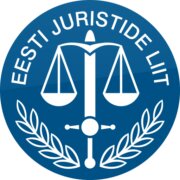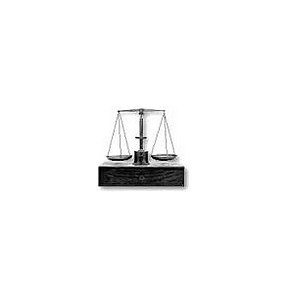Best Civil Litigation Lawyers in Estonia
Share your needs with us, get contacted by law firms.
Free. Takes 2 min.
Or refine your search by selecting a city:
List of the best lawyers in Estonia
About Civil Litigation Law in Estonia
Civil litigation in Estonia is a legal process where parties seek to resolve non-criminal disputes in the courts. It covers a broad range of disputes, including but not limited to contract issues, property disputes, torts, and family law matters. The Estonian civil law system is based on the principles of the civil law tradition, with influences from Germanic legal systems. This means that legal proceedings are typically structured and follow a codified set of rules and laws. The primary legislation governing civil procedures in Estonia is the Code of Civil Procedure, which determines how civil cases are processed and the requirements for proceedings.
Why You May Need a Lawyer
Civil litigation can be complex and nuanced, often requiring professional legal expertise. You may need a lawyer in several situations, including:
- Filing or defending a lawsuit: Whether you are the plaintiff or the defendant, a lawyer can help navigate the process.
- Contract disputes: When agreements become contentious, legal professionals ensure your rights are protected.
- Property disputes: Land ownership and property rights can involve intricate legal principles.
- Personal injury claims: A lawyer can help secure compensation and navigate liability issues.
- Family law issues: Divorce, custody, and inheritance matters often require legal intervention to ensure a fair outcome.
Local Laws Overview
Estonian civil litigation is governed by the Code of Civil Procedure, which outlines the process and requirements for civil cases. Some key aspects include:
- Jurisdiction: Determining the correct court with the authority to hear a case is essential.
- Limitation periods: These are time limits within which a lawsuit must be filed, varying based on the type of claim.
- Evidence: The collection and presentation of evidence follow strict rules, and sufficient proof is needed to support claims.
- Costs: Litigants may incur costs for court fees, legal representation, and other expenses.
- Appeals: The system allows for appeals, but they must adhere to specific criteria for consideration.
Frequently Asked Questions
What is the average duration of a civil lawsuit in Estonia?
While the duration can vary depending on case complexity, civil lawsuits in Estonia usually take several months to years from filing to resolution.
Can I file a lawsuit without a lawyer?
Yes, individuals may represent themselves in court. However, due to the complexity of legal procedures, professional representation is often recommended.
What are the costs associated with civil litigation?
Costs can include court fees, legal representation fees, and costs for gathering evidence or expert witnesses. Exact costs vary depending on the case.
How do I know which court to file my lawsuit in?
Jurisdiction depends on the nature of the dispute, location of parties, and specific legal provisions. A lawyer can assist in determining the appropriate court.
What are my chances of winning a civil lawsuit?
Chances depend on the strength of evidence, legal arguments, and the specific circumstances of the case.
Can a court's decision be appealed?
Yes, decisions can often be appealed to higher courts, subject to specific grounds and time limits.
How is evidence presented in court?
Evidence must be relevant, admissible, and presented in accordance with procedural rules. Witness testimony, documents, and expert opinions are common forms.
What happens if I lose the case?
If you lose, you may be required to pay the other party's legal costs and obey any court orders issued against you.
Are there alternative dispute resolution methods available?
Yes, mediation and arbitration are available as alternatives to court proceedings and can be faster and less costly.
Is the court's judgment enforceable across borders?
Estonia is part of the EU, so judgments are generally enforceable in other member states under EU regulations.
Additional Resources
For those seeking further information or assistance, consider contacting the following resources:
- Estonian Bar Association: Provides information and guidance on finding qualified lawyers.
- Ministry of Justice: Offers details on legal processes and reforms.
- Chambers of Commerce: Often provide mediation services and support for business-related disputes.
Next Steps
If you need legal assistance in civil litigation, consider the following steps:
- Consult with a lawyer specializing in civil litigation to discuss your case and options.
- Gather any necessary documents and evidence pertinent to your situation.
- Be mindful of limitation periods to ensure your rights are preserved.
- Consider alternative dispute resolution methods if appropriate for your case.
- Prepare for possible court appearances by understanding the procedures and what to expect.
Lawzana helps you find the best lawyers and law firms in Estonia through a curated and pre-screened list of qualified legal professionals. Our platform offers rankings and detailed profiles of attorneys and law firms, allowing you to compare based on practice areas, including Civil Litigation, experience, and client feedback.
Each profile includes a description of the firm's areas of practice, client reviews, team members and partners, year of establishment, spoken languages, office locations, contact information, social media presence, and any published articles or resources. Most firms on our platform speak English and are experienced in both local and international legal matters.
Get a quote from top-rated law firms in Estonia — quickly, securely, and without unnecessary hassle.
Disclaimer:
The information provided on this page is for general informational purposes only and does not constitute legal advice. While we strive to ensure the accuracy and relevance of the content, legal information may change over time, and interpretations of the law can vary. You should always consult with a qualified legal professional for advice specific to your situation.
We disclaim all liability for actions taken or not taken based on the content of this page. If you believe any information is incorrect or outdated, please contact us, and we will review and update it where appropriate.
Browse civil litigation law firms by city in Estonia
Refine your search by selecting a city.












